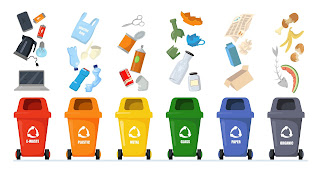The Ethics Behind Donating Losing Team Gear: Is It the Right Call?
Every year, major sports leagues like the NFL, NBA, and MLB face the same peculiar problem: what to do with the championship merchandise printed for the team that didn’t win. Known as losing Super Bowl shirts or runner-up merchandise, this apparel is never seen on store shelves, yet it is produced in large quantities in advance to prepare for either outcome.
Instead of sending this gear to landfills, many leagues partner with nonprofits to donate the items to underserved communities around the world. But is this ethical? Let’s unpack the moral, cultural, and environmental implications of donating team gear.
1. The Intention: Doing Good with Excess
At the heart of the donation model is a noble goal helping people in need. Distributing losing Super Bowl shirts and other merchandise to countries facing poverty provides much-needed clothing, especially in areas recovering from disasters or conflict.
"The gear brings dignity to those who have so little," says one aid worker involved in international clothing distribution.
From a practical standpoint, it’s far better to give the clothing a purpose than to burn or discard it.
2. The Cultural Sensitivity Debate
However, critics argue that this well-meaning gesture may carry unintended consequences. Some communities receiving these shirts may not follow American sports or understand why they are receiving clothing that declares a team as champion when that team actually lost.
This can lead to confusion or a sense of being handed second-class items. There’s also concern about cultural insensitivity imposing Western values or memorabilia without proper context.
“It’s not just about giving. It’s about giving with dignity and awareness,” says Dr. Elena Moore, an anthropologist studying global aid.
3. Impact on Local Economies
Flooding a developing country’s market with free goods including branded merchandise can disrupt local economies. When residents receive large amounts of donated clothing, it can undermine local tailors, merchants, and textile industries.
This raises the question: Is helping in the short term harming in the long term?
Note: Organizations like SwagCycle are exploring alternative routes, such as upcycling or converting losing Super Bowl shirts into new items domestically, to avoid this issue.
4. Environmental Considerations
One strong argument in favor of donating the gear is its environmental benefit. Throwing away or destroying thousands of unused shirts generates unnecessary waste. Upcycling and redistribution extend the life of products that would otherwise become landfill material.
When paired with ethical donation practices, this can form a powerful solution that respects both people and the planet.
5. Alternatives to Donation
Some brands and organizations are rethinking how to handle pre-printed gear:
Upcycling: Repurposing losing Super Bowl shirts into new merchandise, like tote bags or patches.
Employee Giveaways: Internal company contests or giveaways where the gear becomes a quirky collector's item.
Secure Destruction: If ethical or branding concerns outweigh the benefits, some choose responsible destruction through textile recycling services.
Conclusion:
Donating losing team gear, such as losing Super Bowl shirts, is a complex issue. On one hand, it prevents waste and offers assistance to communities in need. On the other, it must be done thoughtfully respecting cultural context, avoiding economic disruption, and ensuring dignity in aid.
As the global conversation around sustainability and ethical branding continues, sports leagues and companies must weigh every option carefully. Working with organizations like SwagCycle helps ensure that donations align with both environmental and social values. After all, the ultimate win is creating solutions that support people and the planet.



Comments
Post a Comment